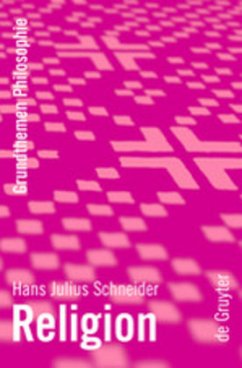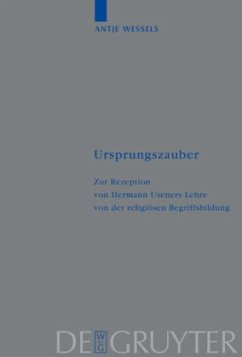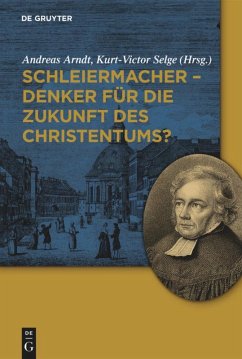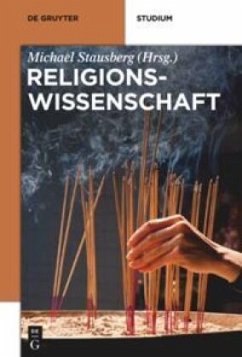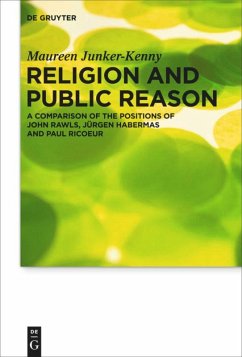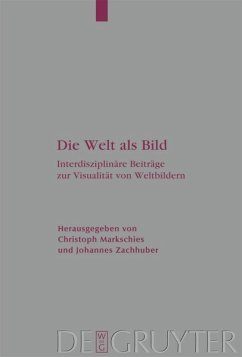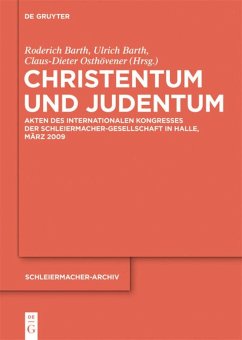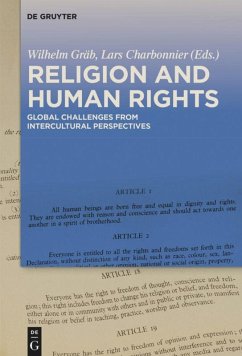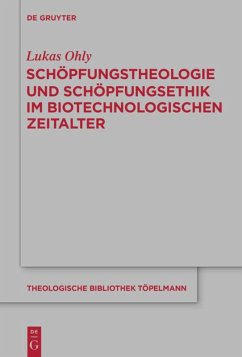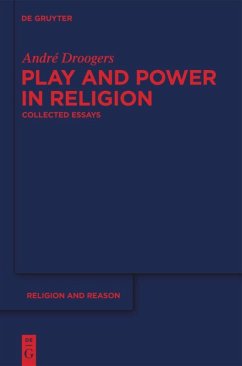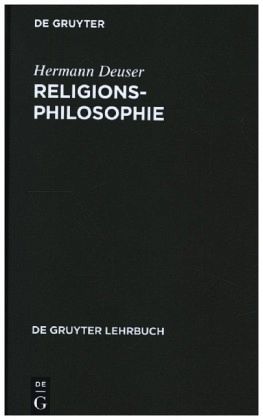
Religionsphilosophie

PAYBACK Punkte
0 °P sammeln!
The philosophy of religion lies at the intersection of theology, philosophy and the theory of religion. The presentation concentrates on Christian traditions as transformed through the European Enlightenment and the present-day re-appropriations of the pragmatic significance of religion. Particular interest is devoted to integrating initiatives from American approaches to the philosophy of religion, which differ from 20th century German Protestant theology in explicitly seeking the connections between nature, religion and science. This affirms the universal significance of the philosophy of religion in the present day.
Introduction to origins, history and current approaches of philosophy of religion
Detailed presentation of single paradigms
Exemplification by interpretations of appropriate original texts
Introduction to origins, history and current approaches of philosophy of religion
Detailed presentation of single paradigms
Exemplification by interpretations of appropriate original texts
Religionsphilosophie als wissenschaftliche Disziplin ist ein Ergebnis philosophischer Theologiekritik in der europäischen Aufklärungsepoche (um 1800). Seither sind ganz unterschiedlich orientierte Positionen zu beobachten, die sich aber in einem je spezifischen Überschneidungsfeld von Theologie, Philosophie und Religionstheorien der Moderne lokalisieren lassen. Dazu gehören pluralistisch und komparativ arbeitende Religionsforschungen ebenso wie Rekonstruktionen und Aktualisierungen der biblischen, antiken und scholastischen Traditionsbildungen. Die europäische Neuzeit liefert darüber hinaus die wissenschaftstheoretische Problemstellung, ob der Zusammenhang von Natur und Geist systematisch begründet werden kann und welche Rolle dabei Metaphysik und Religion zukommt.
Die Religionsphilosophie des 21. Jahrhunderts gewinnt - anders als im Kantianismus des 19. und in der (deutschen) Theologie des 20. Jahrhunderts - neue Methoden und Konturen, wenn sie von Phänomenologie, (analytischer) Sprachphilosophie, nordamerikanischem Pragmatismus und Prozessdenken lernt. Kategoriale Semiotik (Ch. S. Peirce), Religionspsychologie (W. James) und die Erneuerung der Kosmologie (A. N. Whitehead) beenden die Isolation des Religionsproblems und begründen den wissenschaftlich universalen Rang der Religionsphilosophie.
Die Religionsphilosophie des 21. Jahrhunderts gewinnt - anders als im Kantianismus des 19. und in der (deutschen) Theologie des 20. Jahrhunderts - neue Methoden und Konturen, wenn sie von Phänomenologie, (analytischer) Sprachphilosophie, nordamerikanischem Pragmatismus und Prozessdenken lernt. Kategoriale Semiotik (Ch. S. Peirce), Religionspsychologie (W. James) und die Erneuerung der Kosmologie (A. N. Whitehead) beenden die Isolation des Religionsproblems und begründen den wissenschaftlich universalen Rang der Religionsphilosophie.




